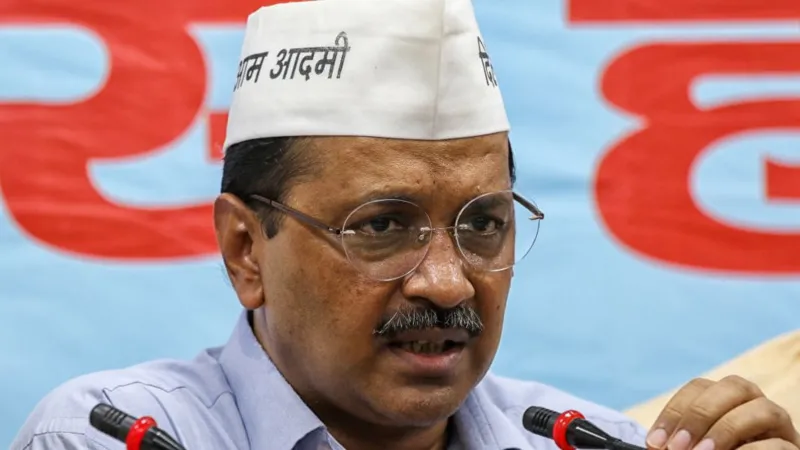0%

Delhi chief minister Arvind Kejriwal was arrested in March over corruption allegations/Getty Image
DELHI: India’s top court has granted interim bail to Delhi Chief Minister Arvind Kejriwal, more than a month after he was arrested in a corruption case.
The court said that the bail is applicable until 1 June after which he must surrender to authorities again.
A former anti-corruption crusader, Mr Kejriwal was arrested in connection with a now-scrapped alcohol sales policy in March.
He has denied the charges against him and has called his arrest “illegal”.
The chief minister moved the Supreme Court after the Delhi High Court refused to give him bail last month. His bail was strongly opposed in court by India’s financial crimes agency, the Enforcement Directorate.
On Friday, a bench of Justice Sanjiv Khanna and Justice Dipankar Datta said Mr Kejriwal would have to surrender on 2 June, two days before the results of India’s general election are due.
The court has said Mr Kejriwal would be allowed to campaign for the election upon his release but will not be allowed to perform official duties during that time.
A member of the Aam Aadmi Party (AAP), Mr Kejriwal was arrested on 21 March, days after the election dates were announced. He was the third AAP leader to be jailed in the case.
The ED accused him of favouring liquor barons in exchange for kickbacks. The party has denied the allegation.
Critics said the action against Mr Kejriwal and several other opposition parties was politically motivated and denied them a level playing field in the parliamentary election. The Indian government said the investigative agencies were just doing their work.
During his time in jail, Mr Kejriwal did not give up office. His party said he was running the Delhi government from prison.
A diabetic, the Delhi chief minister’s detention also caused concerns about his health among supporters.
Last month, Mr Kejriwal and his party accused prison authorities of refusing to give him proper treatment which, they said, had led to the spike in his blood glucose levels.
The ED, however, claimed he had deliberately had too many mangoes and sweets to spike his sugar levels and use it as grounds for bail.
He later received insulin shots after a court ordered doctors from a premier hospital to determine his medication.
During the court proceedings, the ED opposed Mr Kejriwal’s bail plea, claiming it would set a bad precedent as he had evaded the agency’s summons nine times.
Justice Khanna, however, said: “While granting interim bail, we examine whether there will be any misuse or if the person is a hardened criminal. That is not the case here.”
In March, the arrest had also drawn comments from the US and Germany.
US State Department spokesperson, Mathew Miller said the country was closely following Mr Kejriwal’s arrest and actions taken against opposition parties in India.
“We encourage fair, transparent, timely legal processes [in both cases],” Mr Miller said.
The German foreign ministry said it hoped that Mr Kejriwal would get a “fair and impartial trial as India is a democratic nation”.
India summoned senior diplomats of both the US and Germany to register its protest.
BBC